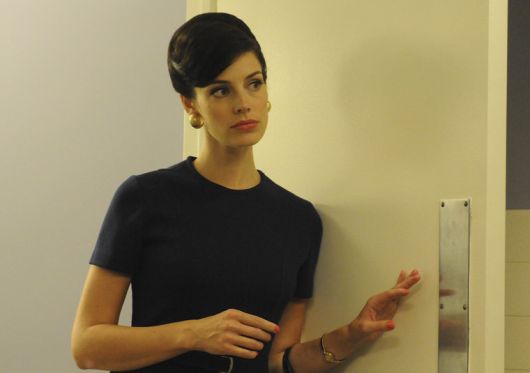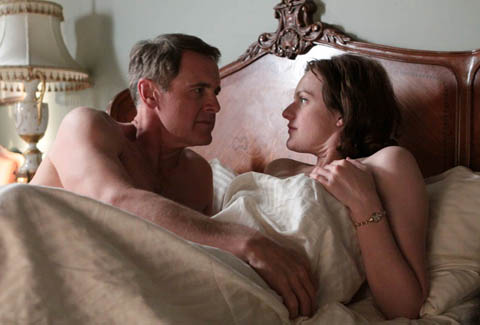
It Was A Confusing Time
by ALEX CARNEVALE
Apart from the astonishingly disproportionate amount of attention it gets from the media, Mad Men isn't very popular. The show's ratings are worse than HBO's Hung or its AMC lead-in Rubicon, and dropped precipitously after the season premiere. The advertising industry itself is fond of saying that it markets to younger people, but while young people might do the buying, they don't do the watching. The people driving television ratings are the older crowd, and they don't like Mad Men.
The media loves Mad Men, and Hollywood loves Mad Men, but regular people don't like Mad Men. Despite its third consecutive Emmy for best drama, the show's audience has remained tiny in comparison to its inferior competition.
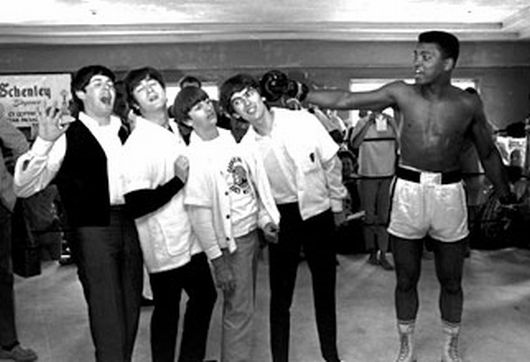
Although Mad Men is the best show on television, a fact that is not likely to change until Breaking Bad returns to the air, even the show's biggest fans can admit there are a lot of reasons not to like Mad Men. A few even seem to derive pleasure from speaking out against the show, as if not experiencing something were itself a badge of honor.
As we all know, exposure effect runs the world. In fact, social psychologist Robert Zajonc was doing his work on mere exposure effect during roughly the same period that Roger Sterling dumped his wife of thirty years. We not only are predisposed to like things that we've experienced, but if other people don't immediately share our view, there is trouble on the horizon. This line of sight runs both ways. We can barely stand to try to enjoy something that we are told we should enjoy. I know; I've tried to get my mother to read a particular novel for the last six months, and she can't even get past the first page. She also won't watch Mad Men. I should have told her it sucked.
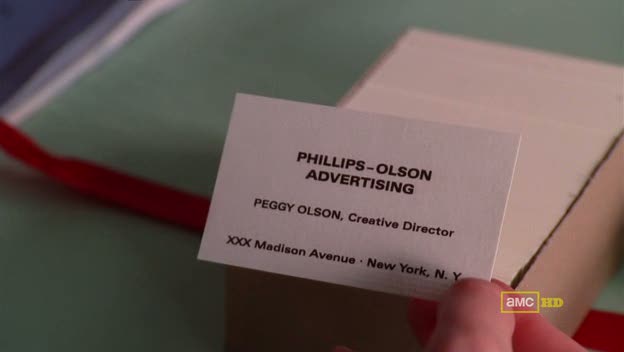
Mad Men has a number of elements that make it incredibly unappealing to people of a certain generation. The first is that it's a lively caricature of a time period they already lived through, and the second is that it plays that time period entirely for laughs. In reality, the 1960s and 1970s wasn't all drinking in offices and waking up with your cleaning lady. It was a very scary time in American life for a lot of people, and reliving it must feel like it's happening all over again.
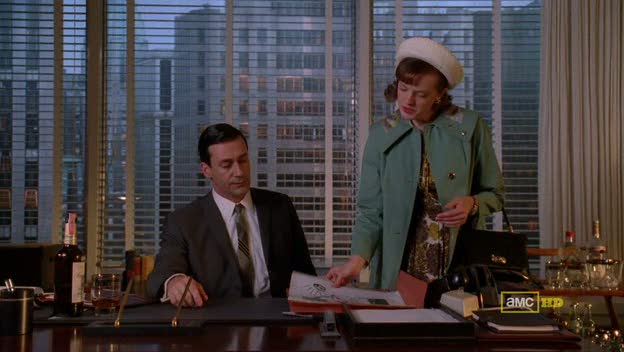
Older people don't want to hear catty jokes about how racist and sexist things were back then. Maybe they were a bit of both, come to think of it, but broadcasting it feels like an insult to the participants. On its own this could be overcome, because all period pieces bear more resemblance to the present than their own times. The more prevalent complaint that people offer about Mad Men is they don't find anybody on the show with which they can sympathize.
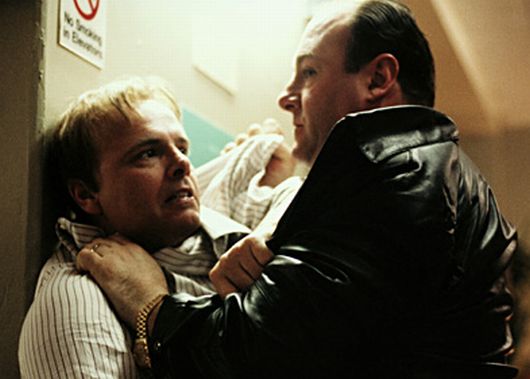
This is the least convincing of the world's slanders, primarily because people said similar things about The Sopranos. But in point of fact it is fairly hard to identify with characters on either show. It's no coincidence that the major relationship of both shows is a mentor-protege conflict. Peggy is really the protagonist of Mad Men, and it would be wrong to say that either Don or Tony Soprano is the antagonist, but in a very crucial way, they are the obstacle to the heroine getting what she wants.
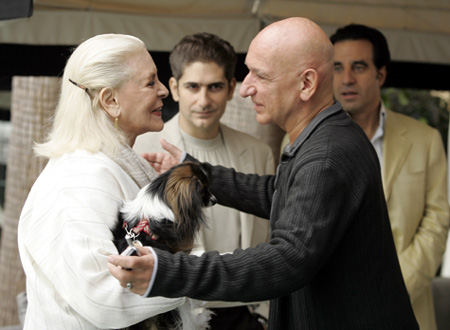
Only, it was a little more obvious what Christopher Moltisanti wanted. He wanted Ben Kingsley for his movie Cleaver, and he wanted power, money, and even fame. Peggy just wants respect from her peers, equal treatment in business, and maybe a Clio. It's not a lot in comparison. And that's what we think she wants — we don't really know, and perhaps neither does she. She has dumped her sex-crazed boyfriend and seems willing to embark on a new adventure of some kind, but she is just as likely to castrate Pete Campbell and take the train back to Brooklyn as she is to come up with the Absolut Vodka campaign all by her lonesome.
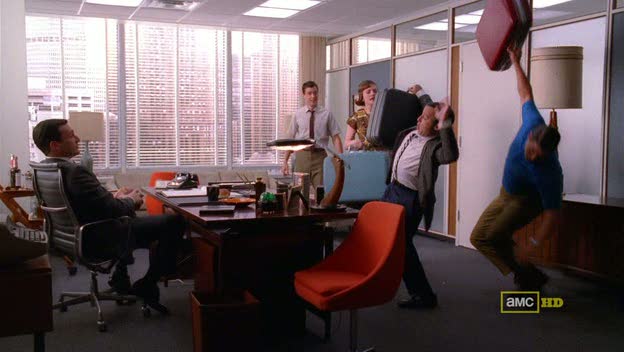
Like many characters on both shows, we can't really say what we expect from them. It's gotten so bad that this misguided New York recapper insanely believes that Don and Peggy are about to embark on a sexual relationship. Believe me, that last thing Matthew Weiner wants to do to his protege is have sex with her.
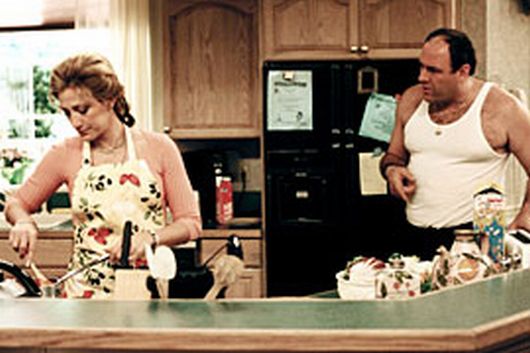
We always knew what to expect from Tony Soprano, however, and that's how he became a hero in spite of himself. The Sopranos was one of the funniest comedies on television, because we usually knew exactly what Tony was thinking in every situation, and as such, his reactions — grimacing, snoring, rage — were their own mime show, the kind that you already know all the moves to, but you like anyway. We also have an easier time liking someone we're supposed to hate.
Don Draper replicates this utter sense of abandon; but because he is a mystery to himself, we don't know exactly why he's a piece of shit. There must be some reason every douchebag is one, but not everyone can be lucky enough to know it.

To new viewers of the show, Don must appear something like a hero, and no one wants to watch their hero drunkenly hit on every woman with a functioning vagina, and wake up with one named Doris. Don isn't a hero. He's not even nice, and he treats Peggy even worse than he treated his ex-wife. The only nice thing Don ever did was pay for a hooker that looked like Peggy for Lane Pryce, and that was more polite than genuinely good.

This makes it all more baffling that Jon Hamm's voice is being used to sell cars and insurance on radio and television. Clearly the advertising executives don't watch the show that is ostensibly about them, because if they did, they'd realize the voiceover is Satan's intonation. The most positive thing you can say about Dick Whitman is that he tells the truth when he's drunk.
So I can't blame people for not liking Mad Men. No work of art is intended for everyone, not even The Sopranos, the triumphant achievement of serial television from which Weiner's show takes so many of its tonal elements and characterizations. Besides being a period piece, Mad Men is a thinly veiled chronicle of how Matthew Weiner relates to the world. In brief, he mostly thinks we're his servants.
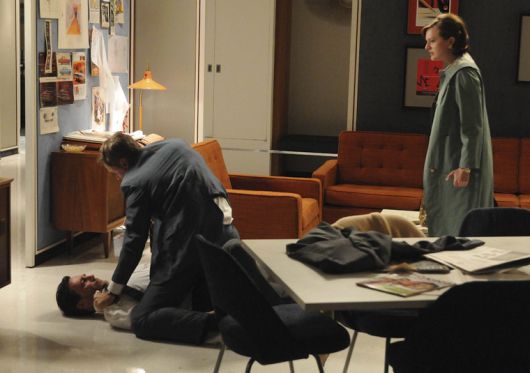
The culmination of four years of dealing with Don's garbage was last night's morality play, where the disease and poison of Don's own mental processes was reflected by mice, cockroaches, and the human vermin that is Duck Phillips. The late Mrs. Draper packs them all up in her Samsonite briefcase and takes off. The problem, as always, wasn't with the writing, although it took several unimaginative shortcuts to make the two closer — Don sobbing because he has to pay the mortgage for some Berkeley grad who wouldn't even give him an HJ, Peggy fishing for compliments about how 'pretty' she is (is that all this was about?) and Bert Cooper having no testicles.
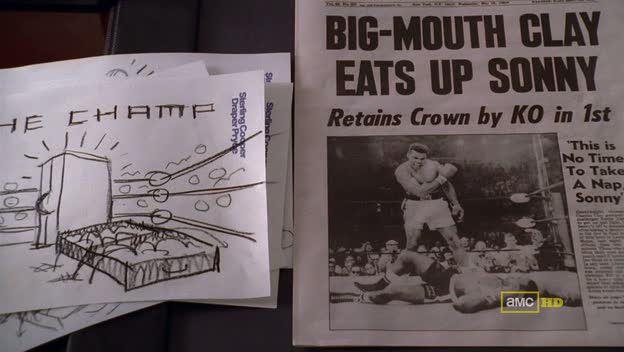
The problem with having Don's protege relationship supplanting his love relationship is that while almost everyone has some kind of love relationship in their life except for Jennifer Aniston, not that many people can relate to the psychotic creative director-precocious protege relationship. And in fact, Peggy does a much worse job arguing her case than Don does his for treating her like his lapdog, making the conflict less than a battle of equals.
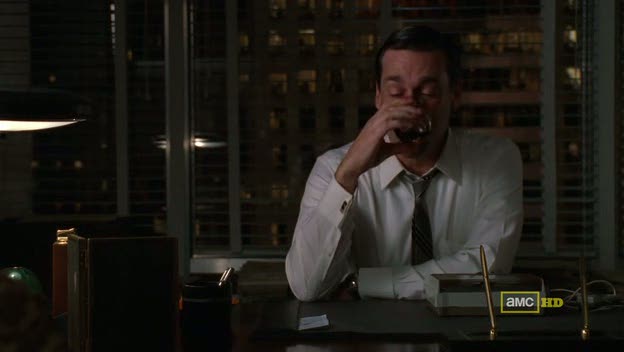
Peggy giving up her birthday dinner isn't the same as Don giving up his special time with Roger Sterling, whom he misses so much he plays cassette tapes of the man's voice. The mercurial Draper seems almost rational when he tells her that her time will come, avoiding the point completely; she won the Clio, not him. The work he stole from Roger's wife's cousin wasn't his either, it was just another drunken theft, the cure for the common being terrible at life.
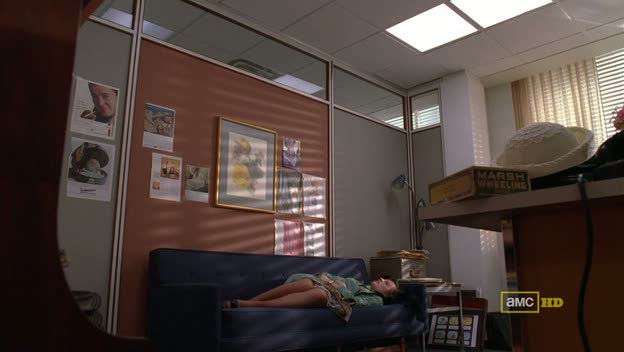
It's fabulous that the new Don wants his door open, and that he shaved for the first time since his divorce. Congratulations. Jon Hamm gets to make out with Jessica Stein every night while Elisabeth Moss' ex-husband Fred Armisen has intercourse with every twenty-something in Park Slope. Peggy has to wake up in her own office with the Three Stooges when all she wants is to have Pete Campbell's baby inside her and the Popsicle account, and a fancy dinner where her mother isn't involved. (Really, she should probably be thankful she doesn't have to hear about Freddy Rumsen's arrowhead collection.)
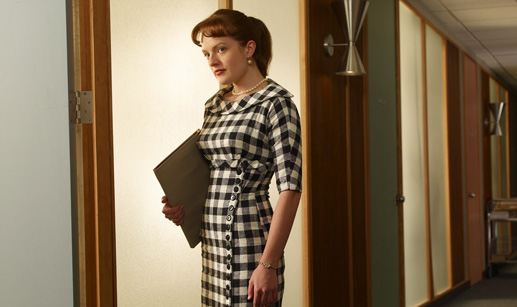
When Mad Men attacks cliche, it usually does it in such an unusual way that you forget the basic storylines of Peggy's pregnancy, Don's infidelity, Joan's rapist doctor husband, and Betty's unfit mothering have been staples of daytime television since Susan Lucci was in diapers. In a way, it feels like this is the first time we're seeing these plots play out, and they take on a freshness other dramas can't approach. Don's Cassius Clay ad is now a terrible cliche itself, and let's face it, a million other agencies probably had the exact same idea that morning. But in his office, growing a slanted erection from the incidental touch of Peggy's hand on his own, it may as well be the face of the new sun.
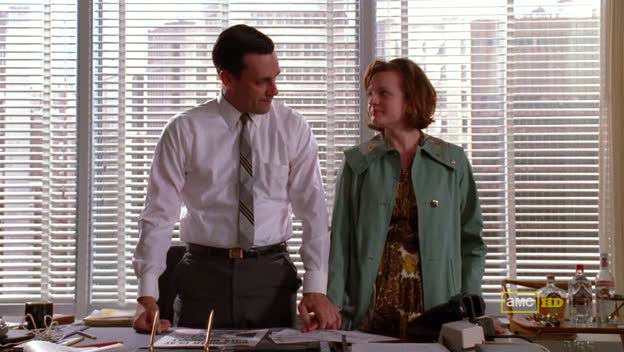
This same sort of temporary enlightenment happened to Tony Soprano more than once. Each time he resolved to be a better man, it inevitably resulted in Carmela falling in love with Tony's imported henchman and Tony forgetting all about his resolution once he was crossed in any way. Don's not turning over a new leaf; his sickness may have been locked up in that eidolon's Samsonite briefcase, but his conscience carried it out the door and disappeared.
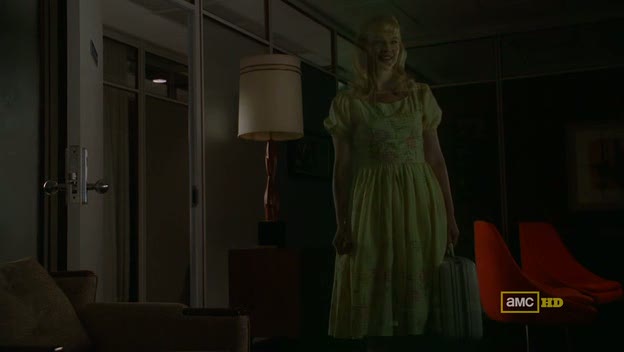
This season began with Don Draper's first fame, and he is now about to explode. If he takes Peggy along with him, it will probably allow us to enjoy the ride. Many people never watched The Sopranos while it aired, because they also felt they could not relate to its foreign milieu. This was their loss, and oh what a loss it was, like pretending Van Gogh wasn't painting or William Faulkner wasn't writing. No matter how many Emmys Mad Men wins, some people will stay away because of how little comfort the show offers us during a difficult time in American life. Matthew Weiner's show is no warm blanket, but taste is fickle, and nobody has to love every work of art, even when it's this good.
Alex Carnevale is the editor of This Recording. He tumbls here and twitters here. He last wrote in these pages about Fairfield Porter and the New York school of poets.
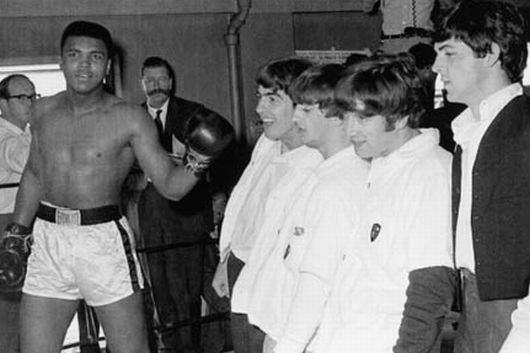
"Nobody Loves Me (Massive Attack remix)" - Portishead (mp3)
"Acid Jazz and Trip Op (remix)" - Portishead (mp3)
"You Find The Earth Boring" - Portishead (mp3)
